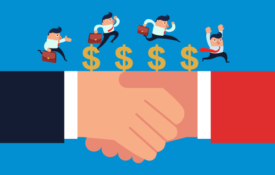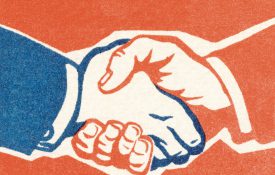
Negotiating
Deal making at the international, business, and interpersonal levels involves a variety of emotional, social, and language factors that lead to a final agreement — or a stalemate.
Recipients of generous first offers may become too trusting for their own good.

Making a very precise offer for a car or a house may hurt your chances of success if you’re negotiating with someone who has expertise in that area, a series of studies shows.

A “safe" retirement investment put this cognitive psychologist’s lifetime of learning to the test.

Angry negotiators can make irrational decisions that lead to lower offers, but researchers from Saarland University demonstrate that a simple self-regulation plan can help cooler heads prevail.

Psychological scientists find that a bit of schmoozing may help men—but not women—walk away from a negotiation with a better deal, as well as better long-term business relationships.

Making a joke about an implausibly high salary at the beginning of a negotiation actually led to higher average salary offers.

A new study shows just how critical word choice becomes in softening long-standing conflicts — including geopolitical clashes

We’ve all been on the receiving end of an angry glare, whether from a teacher, parent, boss, or significant other. These angry expressions seem to boost the effectiveness of threats without actual aggression, according to

Negotiators are thought to bolster their power when they come to the table with viable alternatives, no matter how weak. But research from an international team of psychological scientists suggests that powerlessness can sometimes be an advantage.

A series of experiments reveal whether people who trust their feelings (and those who do not) handle themselves in the art of negotiation.
